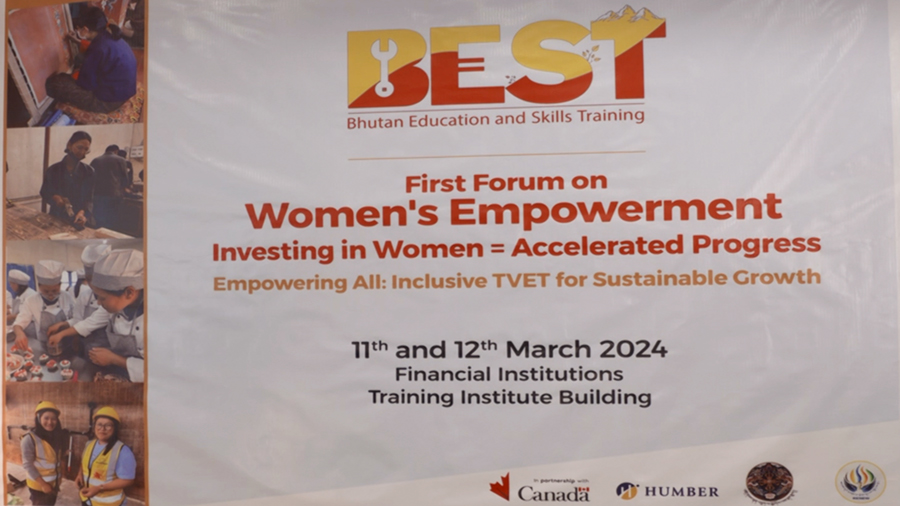
To tackle the challenge of engaging young people including women, persons with disabilities and vulnerable populations in Technical and Vocational Education and Training or TVET, the Bhutan Education and Skills Training held a two-day forum in the capital. The event, attended by 50 participants from diverse organisations and CSOs showcased action plans to enhance inclusivity in TVET programmes.
Participants during the two-day forum highlighted the significant barriers faced by individuals with disabilities in accessing TVET. They said these barriers hamper their engagement in the workforce and economic opportunities.
A student from the Wangsel Institute for the Deaf expressed concerns about job transition after graduation with the certificate.
“I think when it comes to vocational and also certification it is good. But after we get certified we don’t get jobs. It would be better if we could have some policy in place that will get us employed. It’s worrisome when I think about supporting my family. I often think about the job I will get with the certificate I have. People should not neglect persons with disabilities when they have the skills and knowledge. If you can provide us with the opportunities, we can do it,” said Lhakpo, a student at Wangsel Institute for the Deaf.
Meanwhile, the Ministry of Education and Skills Development has begun working on a TVET reform program.
The Bhutan Education and Skills Training or BEST project, funded by Global Affairs Canada, is supporting the government in a comprehensive reform of the TVET system in the country. The reform focuses on inclusive education and skill development through revamped courses.
“Under the BEST project, as a part of the national TVET reform plan we offer nine courses that are diploma and certification courses. The courses are designed in such a way that they also align with four cross-cutting themes of our project which are gender, accessibility, environment, and GNH. For instance, courses like graphic designing are developed aligning with the theme of gender equality and they also cater opportunities to people with disability,” said Lobzang Dorji, Country Coordinator of Bhutan Education and Skills Training.
“One of the main aims of the project is to make TVET inclusive of all. To do so, we need to ensure that all groups are included both in terms of access to TVET and also have the opportunity to complete TVET and transition to the job industry. Especially when we talk of inclusion we are looking at women and people with disability,” said Nalini Andrade, Project Director of Bhutan Education and Skills Training.
Led by Humber College in partnership with the Ministry of Education and Skills Development and RENEW, the project aims to enhance vocational education in the country.
Sonam Yuden
Edited by Sonam Pem












